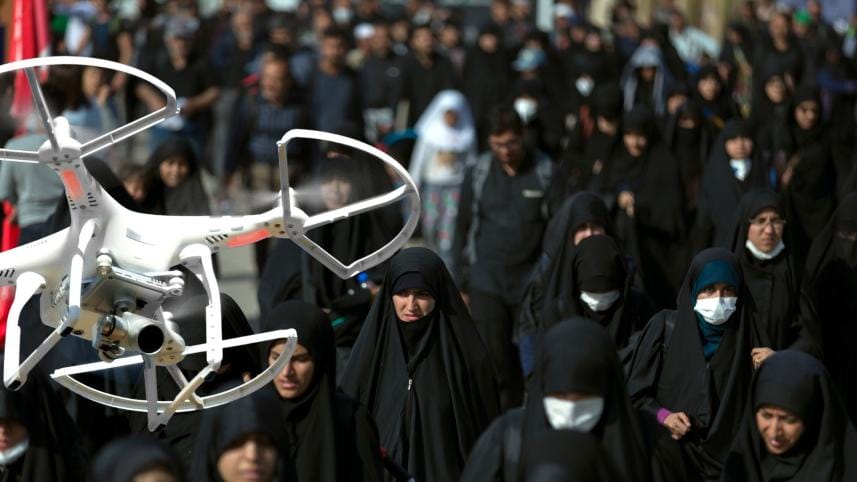Iran using drones and apps to enforce hijab laws, says UN report

Iran is deploying aerial drones, facial recognition technology, and a mobile application to enforce its mandatory hijab laws, according to a United Nations report released on Friday. The report highlights the government's increasing reliance on technology to monitor and punish women who fail to comply with the country's strict dress code.
At the heart of this crackdown is the government-backed "Nazer" mobile application, which allows citizens and police to report women for alleged hijab violations. The app enables users to upload the license plate, location, and time of a vehicle in which a woman is not wearing a hijab. The report states that once the information is uploaded, the vehicle is flagged online, alerting the police. Additionally, a text message is sent in real-time to the registered owner of the vehicle, warning them of the violation and notifying them that their vehicle could be impounded.
The scope of the app's use was expanded in September 2024 to cover women in ambulances, taxis, and public transport, further tightening restrictions on those defying Iran's dress code.
Surveillance through drones and facial recognition
Authorities have also deployed aerial drones in Tehran and parts of southern Iran to monitor hijab compliance in public spaces, according to the UN report. In addition, facial recognition software was reportedly installed at the entrance gates of Amirkabir University in Tehran in early 2024 to monitor compliance among women students.
The use of technology to track and penalise women has raised significant human rights concerns. The UN's fact-finding mission accuses Iran of systemic human rights violations and crimes against humanity, particularly in its repression of women and girls.
Legal consequences and potential death penalty
Despite an internal debate leading to the suspension of the draft "Hijab and Chastity" law in December 2024, concerns remain over its possible implementation. If enacted, the law would impose severe penalties on women who refuse to wear the hijab, including up to 10 years in prison and fines equivalent to $12,000. Under Article 286 of Iran's Islamic Penal Code, women accused of "corruption on earth"—a charge often applied to political dissent—could face the death penalty.
The law would also grant expanded enforcement powers to security forces, intensifying the technological surveillance of women across the country.
Historical context and public backlash
Iran's hijab laws have long been a source of contention. The death of 22-year-old Mahsa Amini in the custody of the morality police in September 2022 ignited nationwide protests, with hundreds of people killed in the demonstrations, according to the UN. The protests highlighted growing public opposition to Iran's strict dress code and broader discontent with government policies.
 For all latest news, follow The Daily Star's Google News channel.
For all latest news, follow The Daily Star's Google News channel.
Comments